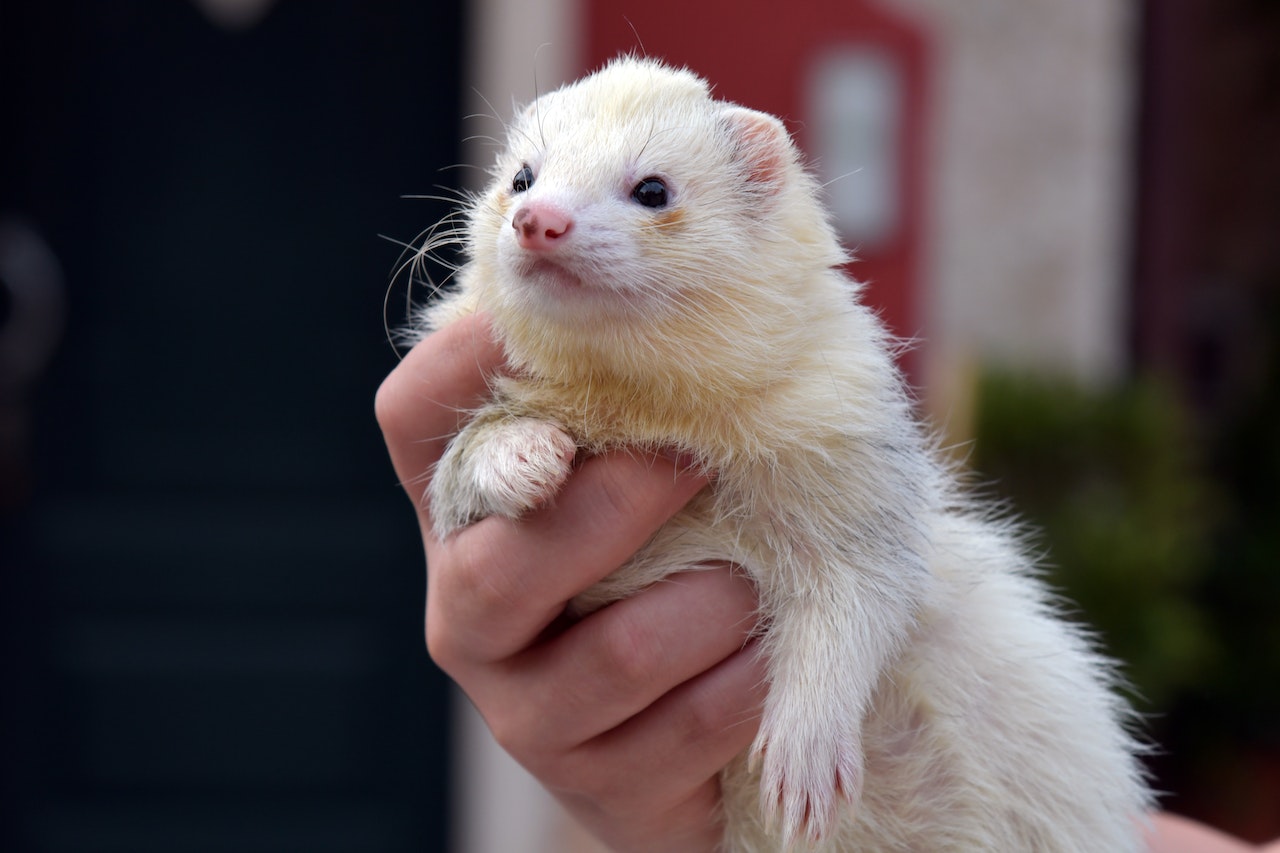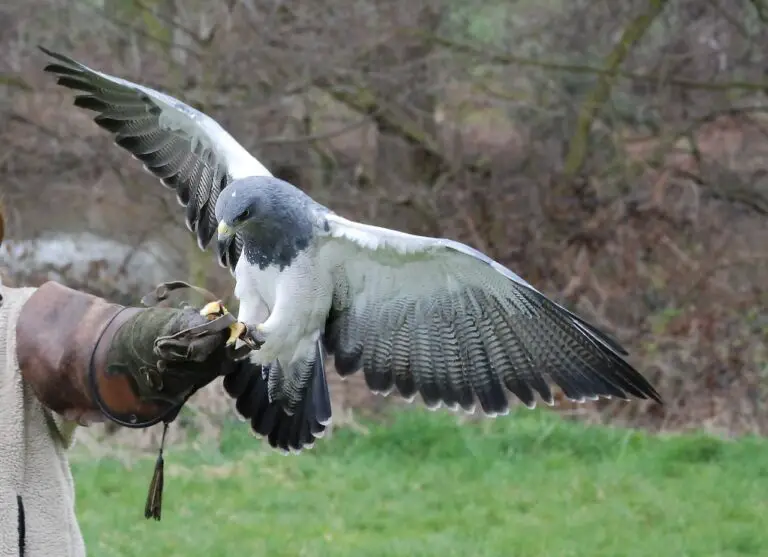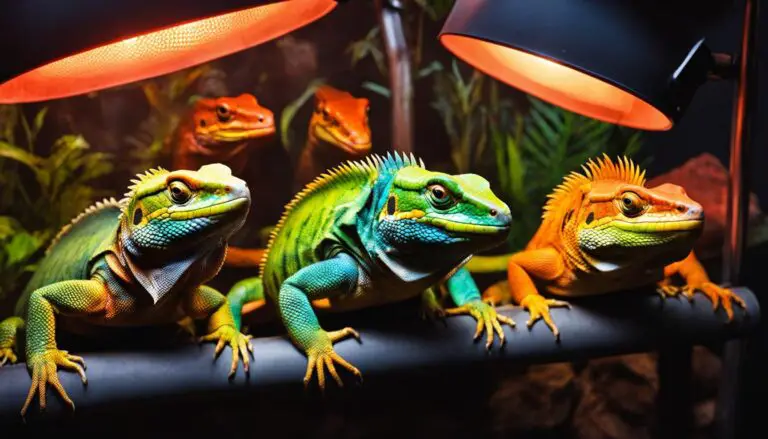Find Your Perfect Exotic Small Mammal Companion [Essential Tips]
Are you considering adding an exotic small mammal to your family?
These adorable and unique creatures can make wonderful companions, but it’s crucial to be well-informed before making such a decision.
In this article, we will provide you with essential practical tips to help you find your perfect exotic small mammal companion.
From understanding their needs and behaviors to creating a suitable habitat, we’ve got you covered.
Let’s embark on this exciting journey together!
Key Takeaways:
- Research thoroughly before choosing an exotic small mammal, considering their lifespan, activity level, and social needs.
- Understand the specific needs of your chosen exotic small mammal, including housing, temperature control, and mental stimulation.
- Choose the right exotic small mammal that suits your lifestyle, preferences, and ability to provide proper care.
- Create a suitable habitat with appropriate cage size, bedding, hiding spots, and enrichment.
- Provide a balanced diet consisting of high-quality pellets, fresh fruits and vegetables, and limited treats.
- Handle and socialize your small mammal gently, respecting their boundaries and gradually introducing them to new experiences.
- Schedule regular veterinary check-ups and maintain a clean living environment to ensure your small mammal’s health and well-being.
- Be prepared for potential challenges and consider the financial commitment, time, and legal considerations of owning an exotic small mammal.
- Enjoy the rewarding experience of building a bond with your exotic small mammal companion through responsible ownership and care.
Researching Exotic Small Mammals
Before choosing an exotic small mammal, it’s vital to conduct thorough research.
Look into different species, their behaviors, and specific requirements.
Learn about their lifespans, activity levels, and social needs.
Understanding the characteristics of various exotic small mammals will help you make an informed decision.
Some important points to consider when researching exotic small mammals include:
- Lifespan: Exotic small mammals have varying lifespans, ranging from a few years to over a decade. For example, hamsters typically live for two to three years, while sugar gliders can live up to 12-15 years. Consider the long-term commitment involved in caring for them.
- Activity Level: Different species have different activity levels. Some are nocturnal, while others are more active during the day. For instance, hedgehogs are primarily active at night, while guinea pigs are diurnal. Choose a species that aligns with your lifestyle and availability for interaction.
- Social Needs: Exotic small mammals have varying social needs. Some species are solitary and prefer to live alone, while others thrive in pairs or groups. For example, rats are highly social animals that benefit from same-species companionship, while hamsters are solitary by nature. Consider whether you can provide the necessary socialization for the chosen species.
Additionally, researching reputable breeders or rescue organizations that specialize in exotic small mammals can help you find a healthy and well-cared-for pet.
Understanding Their Needs
Exotic small mammals have specific needs that must be met to ensure their well-being.
These include appropriate housing, temperature control, dietary requirements, and mental stimulation.
Research each species to understand their unique needs and whether they align with your capabilities and lifestyle.
When it comes to understanding the needs of exotic small mammals, consider the following:
- Housing: Different species have different housing requirements. Some may need a spaciouscage with multiple levels, while others may require a terrarium or a specialized enclosure. For example, sugar gliders need a tall cage with plenty of branches for climbing, while chinchillas require a spacious cage with platforms and hiding spots.
- Temperature and Humidity: Exotic small mammals may have specific temperature and humidity requirements. It’s essential to provide an appropriate environment within their habitat. For instance, hedgehogs prefer a temperature range of 75-85°F (24-29°C), while ferrets thrive in temperatures between 60-70°F (16-21°C).
- Exercise and Enrichment: Exotic small mammals need mental stimulation and physical exercise to maintain their well-being. Provide toys, tunnels, and other forms of enrichment to keep them engaged and entertained. For example, hamsters enjoy running on exercise wheels and exploring tunnels, while ferrets love interactive toys and playtime outside their cage.
Researching and understanding the specific needs of the exotic small mammal you’re interested in will help you create a suitable environment that promotes their natural behaviors and overall health.
Choosing the Right Exotic Small Mammal
Consider your preferences, lifestyle, and the level of care you can provide when selecting an exotic small mammal companion.
Some species, like hamsters or guinea pigs, are more suitable for children, while others, such as sugar gliders or hedgehogs, require specialized care and attention.
Choose a species that matches your ability to provide the necessary care.
Factors to consider when choosing the right exotic small mammal include:
- Size and Space Requirements: Different species have varying size requirements. Ensure you have enough space to accommodate the specific needs of the chosen mammal. For example, ferrets are larger and need more space to roam compared to gerbils or mice.
- Lifespan: Consider the lifespan of the species you’re interested in. Some exotic small mammals have longer lifespans and may require a more extended commitment. For instance, chinchillas can live up to 15 years, while gerbils have an average lifespan of around 2-4 years.
- Temperament: Research the temperament of different species to find one that aligns with your preferences. Some may be more docile and easy to handle, while others may be more active or require specialized handling techniques. For example, guinea pigs are generally docile and friendly, while degus are active and curious.
- Compatibility: If you already have pets at home, ensure the chosen exotic small mammal is compatible with them. Some species may not do well with other animals. It’s essential to introduce them carefully and monitor their interactions to ensure everyone’s safety and well-being.
Researching and understanding the specific traits and requirements of different exotic small mammal species will help you choose a companion that suits your lifestyle and preferences.
Preparing the Habitat
Creating a suitable habitat is crucial for the well-being of your exotic small mammal.
Ensure the enclosure or cage is appropriately sized, escape-proof, and provides ample ventilation. Include suitable bedding, hiding spots, and toys to enrich their environment and promote natural behaviors.
Consider the following tips when preparing the habitat for your exotic small mammal:
- Cage or Enclosure: Choose a cage or enclosure that is appropriate for the species you’ve selected. It should be spacious enough to allow for natural movement and have secure locks to prevent escapes. Make sure the bars are appropriately spaced so that your small mammal cannot squeeze through or get stuck.
- Bedding: Use appropriate bedding materials that are safe and comfortable for your small mammal. Avoid pine or cedar shavings, as they can be harmful to their respiratory system. Opt for bedding made from paper or aspen shavings, or alternative options like fleece liners. -Hiding Spots: Provide hiding spots or shelters within the habitat. These give your exotic small mammal a sense of security and privacy. Use items such as small boxes, tunnels, or wooden shelters where they can retreat when they need time alone.
- Toys and Enrichment: Include toys, tunnels, and other forms of enrichment to keep your small mammal mentally stimulated. Rotate the toys regularly to prevent boredom and provide new forms of entertainment. Consider toys that encourage natural behaviors, such as chewing toys for rodents or hanging toys for sugar gliders.
- Climbing Structures: Many small mammals, such as sugar gliders and ferrets, enjoy climbing. Provide branches, ropes, or ladders within the habitat to satisfy their climbing instincts. Ensure these structures are safe and securely attached to prevent any accidents or injuries.
- Nesting Materials: Some small mammals, like hamsters or gerbils, enjoy creating nests. Provide suitable nesting materials, such as shredded paper or nesting fibers, for them to build comfortable sleeping areas.
Creating a stimulating and enriching habitat will promote the physical and mental well-being of your exotic small mammal companion.
Feeding and Nutrition
Proper nutrition is vital for the health and longevity of your exotic small mammal.
Consult with a veterinarian or exotic pet specialist to determine the best diet for your chosen species.
Provide a balanced diet consisting of high-quality pellets, fresh fruits and vegetables, and occasional treats.
Clean and replenish their food and water regularly.
Consider the following guidelines for feeding and nutrition:
- Species-Specific Diet: Different exotic small mammal species have different dietary requirements. Ensure you understand the specific nutritional needs of your chosen species. For example, sugar gliders require a diet that includes a combination of fresh fruits, vegetables, protein sources, and specialized glider pellets.
- High-Quality Pellets: Offer high-quality pellets formulated for your small mammal’s species. These pellets provide essential nutrients and should be the main component of their diet. Avoid mixed seed diets, as they can lead to selective feeding and nutritional imbalances.
- Fresh Fruits and Vegetables: Supplement the diet with fresh fruits and vegetables that are safe for your small mammal. Be aware of any specific dietary restrictions or potential toxic foods for the chosen species. For instance, guinea pigs enjoy leafy greens like kale and bell peppers, while rabbits should have a variety of hay and leafy greens.
- Limited Treats: Offer occasional treats as a form of enrichment, but be cautious not to overfeed. Treats should be given in moderation to maintain a balanced diet. Choose treats that are safe and appropriate for your small mammal’s species. For example, dried mealworms or small pieces of fruit can be suitable treats for certain species.
It’s important to monitor your small mammal’s weight and adjust their diet accordingly.
Regularly check with a veterinarian to ensure their nutritional needs are being met.
Handling and Socialization
Exotic small mammals have unique socialization needs.
Some species may enjoy regular handling and interaction, while others prefer observing from a distance.
Ensure you understand the specific handling techniques for your chosen species to avoid causing stress or harm.
Gradually introduce them to new experiences and provide mental stimulation through interactive play.
Consider the following tips for handling and socialization:
- Species-Specific Handling: Learn the proper handling techniques for your small mammal species. Some may prefer to be held close to the body, while others may be more comfortable being gently supported in your hands. For example, sugar gliders can be held in the palm of your hand or carried in a bonding pouch close to your body.
- Gentle and Slow Approach: Approach your small mammal calmly and gently. Allow them to become familiar with your scent and touch gradually. Avoid suddenmovements or loud noises that may startle them. Give them time to adjust to new surroundings and people.
- Respect Personal Space: While some small mammals enjoy physical interaction, others may prefer to observe from a safe distance. Respect their boundaries and provide them with hiding spots or safe areas where they can retreat if they feel overwhelmed. Avoid forcing interaction if your small mammal shows signs of stress or discomfort.
- Positive Reinforcement: Use positive reinforcement techniques to encourage desired behaviors and build trust with your small mammal. Reward them with treats or praise when they display positive responses to handling and socialization. This helps create a positive association with human interaction.
- Interactive Playtime: Engage in interactive play sessions with your small mammal using toys, tunnels, or other forms of enrichment. This not only provides mental stimulation but also strengthens the bond between you and your small mammal. Observe their preferences and tailor playtime activities to their specific needs.
Remember that each small mammal has its own unique personality and preferences.
Be patient and understanding during the socialization process, allowing them to build trust at their own pace.
Health Care and Veterinary Support
Just like any other pet, exotic small mammals require routine health care and check-ups.
Find a veterinarian who specializes in exotic animals and schedule regular visits.
Keep an eye out for any signs of illness or distress, and promptly seek veterinary care if needed.
Maintain a clean living environment to prevent the spread of diseases and parasites.
Important points to consider for the health care of your exotic small mammal include:
- Veterinary Specialist: Look for a veterinarian who has experience and expertise in treating exotic small mammals. They will be familiar with the specific health issues and care requirements of your chosen species. Regular veterinary visits are essential to monitor your small mammal’s overall health and detect any potential problems early.
- Signs of Illness: Familiarize yourself with common signs of illness or distress in your small mammal. These may include changes in appetite, behavior, or appearance. If you notice anything unusual, such as weight loss, lethargy, abnormal droppings, or respiratory issues, seek veterinary attention promptly.
- Vaccinations and Preventive Care: Follow your veterinarian’s recommendations regarding vaccinations and preventive care, such as parasite control. Some small mammal species may require specific vaccinations, while others may benefit from regular preventive treatments for parasites like fleas or mites.
- Clean Living Environment: Maintain a clean and hygienic living environment for your small mammal. Regularly clean their cage or enclosure, removing any soiled bedding and disinfecting surfaces. This helps prevent the spread of diseases and ensures a healthy environment for your pet.
By providing regular veterinary care and maintaining a clean and safe living environment, you can help ensure the well-being and longevity of your exotic small mammal companion.
Potential Challenges and Considerations
Owning an exotic small mammal comes with its own set of challenges.
Some species are more prone to specific health issues or have specialized care requirements.
Consider the financial commitment involved in providing proper housing, nutrition, and veterinary care.
Additionally, research local regulations and restrictions regarding exotic pet ownership to ensure compliance.
Take note of the following potential challenges and considerations:
- Financial Responsibility: Owning an exotic small mammal requires financial commitment. Consider the costs associated with purchasing or adopting the animal, as well as ongoing expenses for food, housing, veterinary care, and enrichment. Ensure you can provide for their needs throughout their lifespan.
- Time and Attention: Exotic small mammals require time and attention for their care and socialization. Ensure you can dedicate the necessary time to provide a stimulating and nurturing environment for your companion. Some species, such as sugar gliders or ferrets, are highly social and require daily interaction.
- Commitmentand Lifespan: Some exotic small mammals have longer lifespans, and owning them requires a long-term commitment. Consider your readiness for such a commitment and the potential changes in your circumstances over time. For example, chinchillas can live for 10-15 years or more, while hamsters have a shorter lifespan of around 2-3 years.
- Legal Considerations: Research and comply with local laws and regulations regarding exotic pet ownership. Some species may be restricted or require permits to own legally in certain areas. Ensure you understand the legal requirements and responsibilities associated with owning an exotic small mammal.
- Species-Specific Challenges: Different exotic small mammals may have specific challenges and care requirements. For instance, hedgehogs have specific temperature and dietary needs, while sugar gliders require social interaction and specialized diets. Educate yourself about the unique challenges and considerations associated with the species you’re interested in.
By being aware of the potential challenges and considering them beforehand, you can make an informed decision and provide the best possible care for your exotic small mammal companion.
Conclusion
Finding your perfect exotic small mammal companion can be a rewarding experience.
By conducting thorough research, understanding their needs, and providing appropriate care, you can create a fulfilling and enriching environment for both you and your new companion.
Remember, responsible ownership and regular veterinary care are essential for their well-being.
Enjoy the journey of building a bond with your exotic small mammal companion!
FAQs
Can exotic small mammals be kept as pets?
Yes, many exotic small mammals make wonderful pets, but they require specialized care.
It’s important to research their specific needs and ensure you can meet them before bringing one home.
What are some popular exotic small mammal species?
Popular species include sugar gliders, hedgehogs, ferrets, and chinchillas.
However, there are many other species to choose from, each with its own unique characteristics and care requirements.
Do exotic small mammals require vaccinations?
Vaccinations are not common for exotic small mammals, but regular veterinary check-ups are necessary to monitor their health and well-being.
Consult with a veterinarian who specializes in exotic pets for guidance.
Are exotic small mammals suitable for children?
Some species, like guinea pigs and rabbits, can be suitable for children with adult supervision.
However, it’s essential to consider the age-appropriateness of the species and ensure proper handling techniques are followed.
Can exotic small mammals be trained?
Yes, with patience and positive reinforcement, many exotic small mammals can be trained to some extent.
However, the extent of training may vary depending on the species and individual animal.
Peter Stones is the founder of Exotic Pets Place, the leading online resource for exotic pet care information.
With over 10 years of hands-on exotic pet ownership experience, he is deeply passionate about sharing his expertise to help others properly care for their unusual pets.
When he's not writing extensively researched articles or connecting with fellow exotic pet enthusiasts worldwide, you can find Peter at home tending to his own beloved menagerie of exotic animals.







